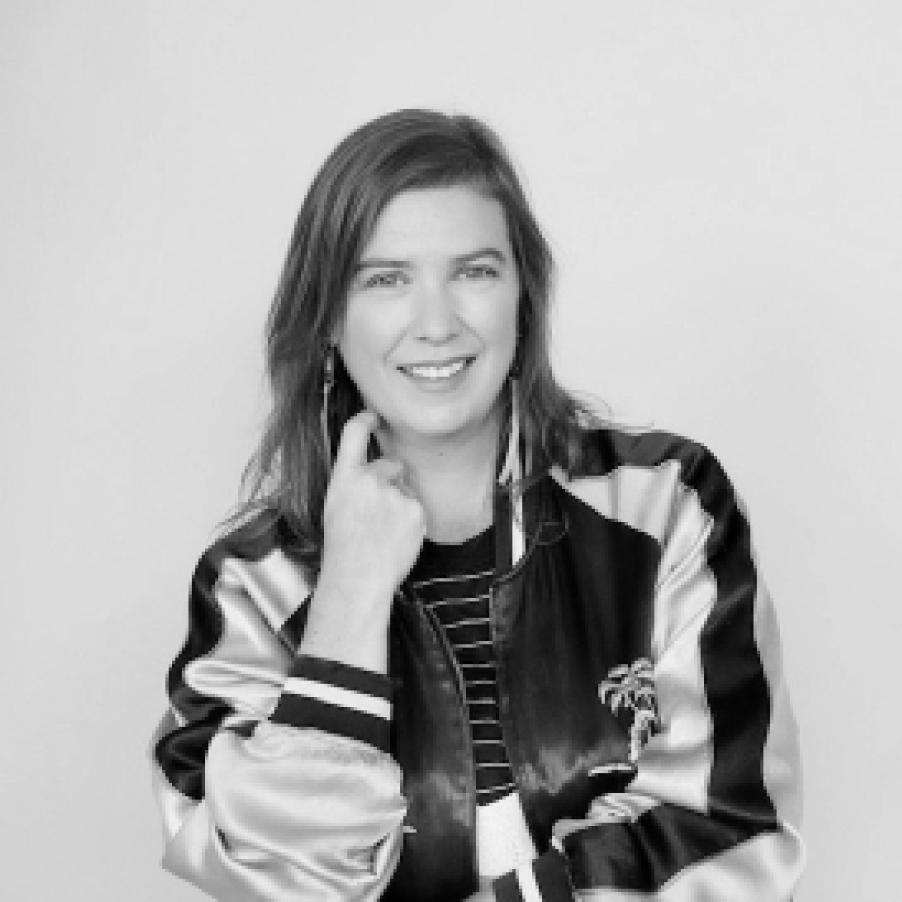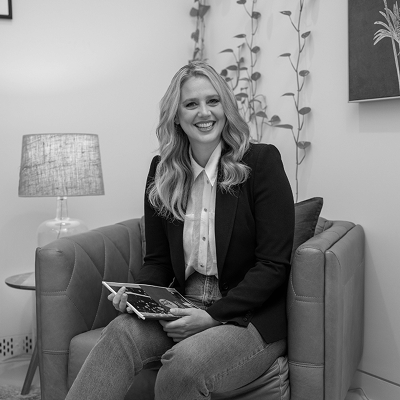
ASKING FOR A FRIEND
How do I get my life back?
ASKING FOR A FRIEND - QUESTION
Feeling trapped by late-night work culture? This honest discussion tackles the question "How do I get my life back?" with practical advice from Tara Hurster, psychologist and founder of The TARA Clinic who specialises in supporting high-achieving professionals, and Jess Lilley, Creative Director and Co-founder of The Open Arms with nearly two decades of agency experience. They explore why we work excessive hours, how to set boundaries that stick, and when it might be time to walk away. From understanding your personal drivers to challenging industry expectations, this conversation offers real strategies for creatives wondering if working until 11 PM is just "how the industry works." Spoiler: it doesn't have to be.
When Work Takes Over: Reclaiming Your Life from Late-Night Agency Culture
Working until 9, 10, or 11 PM most nights isn't just exhausting – it's unsustainable. If you're an art director (or any creative) finding yourself trapped in this cycle, wondering if this is just "how the industry works," you're not alone. The truth is, whilst some agencies have normalised these expectations, it doesn't mean you have to accept them.
This question was answered by Tara Hurster, psychologist and founder of The TARA Clinic, who specialises in addiction recovery and mental health support for high-achieving professionals, and Jess Lilley, Creative Director and Co-founder of The Open Arms in Melbourne, with nearly 20 years of experience in advertising agencies worldwide and a deep understanding of agency culture and its impact on wellbeing. Andy Wright served as host, founder of Never Not Creative and CEO of Streamtime.
Understanding What's Really Happening
Before you can get your life back, you need to understand why you're working these hours in the first place. As Tara explains: "My first question is why are we doing it to begin with. The question really is what are we doing during the day that is not allowing us to facilitate us to do the work that we need to get done?"
There are typically three scenarios at play. First, you might genuinely have too much work for one person. "Does it mean that what we're being handed is too much for the 38 40 hour a week role," Tara asks. Second, you might work better at different hours than the traditional 9-5. Or third, burnout might be making everything take longer than it should.
When the Workload Is Actually Too Much
If you suspect you're being asked to do more than one person can reasonably handle, it's time for an honest audit. Write down everything you're expected to do and compare it to your actual job description. "There might be some things that aren't matching up there and you're being asked to do more than what you rightly should be being asked to do," says Tara.
This isn't about being difficult – it's about having a realistic conversation with your management team. Present the facts clearly and professionally. Sometimes managers don't realise how much they've piled on one person's plate.
Working With Your Natural Rhythms
Not everyone is productive during traditional office hours. If you find yourself more creative and focused in the evening, consider asking for flexible working arrangements. "I noticed that for me I work really well from like 5 PM to 11 PM and I don't seem to get as much done in you know sort of 9 AM to midday," Tara suggests as an example conversation starter.
Flexible workplace arrangements are increasingly common, and in many places, employers are legally required to consider reasonable requests. It's worth exploring whether shifting your hours could solve the problem without the late-night stress.
When Burnout Is the Real Culprit
If everything feels like it's taking ten times longer than it should, burnout might be the underlying issue. "If we're really burnt out and everything is taking 10 as long then this is where we really need to zoom out and look at how are we caring for ourselves," explains Tara.
The solution involves both mental and physical reset strategies. "Mindfulness practice is really really helpful to help use the mind to cool down the body, exercise is really helpful to use the body to cool down the mind," she continues. When you combine both regularly, "it's almost like you're pressing a reset button."
The Power of Boundaries (Yes, Really)
The word that makes everyone uncomfortable but is absolutely essential: boundaries. As Tara points out: "If you don't want to be working at that time you're the only one that can control that because your boss probably isn't breathing down your neck at 9 PM next to you."
Jess offers practical advice: "The easiest boundary is to walk out the door and turn your email and phone off." If you feel uncomfortable about this, communicate in advance: "I can't stay late tonight, I'm staying till six but I have to leave at six."
Challenging the "This Is Just How It Is" Mentality
Jess brings valuable perspective from someone who stepped away from agency life and returned during the pandemic: "I could see straight away how massively things had deteriorated to the point where I was like oh man this is crazy this is just not what I signed up for."
The expectation to work excessive hours isn't universal across all agencies, and it's not something you have to accept. "There are agencies that have that extra expectation," Jess acknowledges, but that doesn't make it right or necessary.
What's Really Driving This Behaviour?
Tara asks the crucial question: "What's the driver behind the behavior? What are you running from, what are you leaning in towards?" Often, we work late because we believe it will lead to promotion, recognition, or job security. But is that actually true?
Sometimes the driver is fear – fear of not being good enough, fear of letting the team down, or fear of losing a job that was hard to get. Understanding your personal motivation is key to breaking the cycle.
When It's Time to Consider Walking Away
This is perhaps the hardest truth: sometimes the healthiest choice is to leave. "You have to be brave to walk away from a job," Jess admits, "especially if you are young and you haven't had much experience we get conditioned to believe that leaving a job means that you're turning down your career."
But as she points out: "You could do yourself a massive more damage by staying in something that is kind of crushing you." Your mental health and wellbeing are worth more than any job, no matter how prestigious or hard-won.
Finding Support Through NNC Circles
You don't have to navigate this alone. Never Not Creative's Circles programme connects creatives facing similar challenges in small, supportive groups. These peer support sessions provide a safe space to share experiences, learn practical coping strategies, and realise you're not the only one struggling with work-life balance. The programme includes monthly wellbeing sessions with trained facilitators and guest speakers who understand the creative industry's unique pressures. Learn more about NNC Circles and how they might support you through this difficult time.
When Workplace Issues Cross Legal Lines
If your excessive working hours are part of a pattern of workplace mistreatment – whether that's unpaid overtime, bullying, harassment, or being pressured into unreasonable conditions – you may have legal rights you're not aware of. Never Not Creative's Support Line offers free initial legal consultations for creatives facing workplace issues. This confidential service can help you understand your rights and options, whether it's about unpaid work, workplace harassment, or other employment concerns. Sometimes knowing where you stand legally can give you the confidence to set those boundaries or make necessary changes. Access the Support Line for free initial legal advice if workplace mistreatment is part of your situation.
When to Seek Professional Help
If you're feeling overwhelmed, experiencing anxiety, or finding it difficult to cope, professional support can make a real difference. Mental health challenges are common in high-pressure creative environments, and there's no shame in seeking help. Whether it's counselling, therapy, or crisis support, trained professionals can provide strategies and support tailored to your specific situation. Find professional help and crisis support resources available in your area.
Getting Your Life Back
The path to reclaiming your life from work isn't always straightforward, but it starts with recognising that working until 11 PM most nights isn't normal or necessary. Whether it's setting boundaries, having honest conversations with management, addressing burnout, or even changing jobs, you have more control than you might think.
Remember, as Jess notes, when everyone gets stuck in "this perpetual pattern of working these ridiculous hours," the work quality suffers anyway, and everyone ends up miserable. Breaking the cycle benefits not just you, but your entire team. You deserve a life outside of work, and taking steps to reclaim it isn't selfish – it's essential.
our guests
Industry Leader

Jess Lilley
The Open Arms
Mental Health Expert

Tara Hurster
Host

